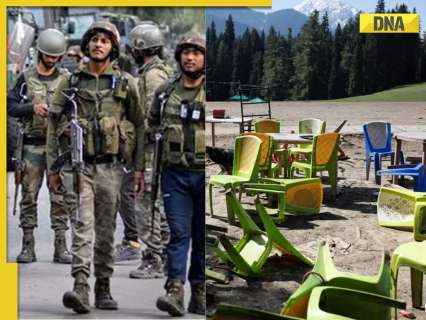Now Reading: Political Controversy over Chidambaram’s ‘Homegrown Terrorists’ Remark
-
01
Political Controversy over Chidambaram’s ‘Homegrown Terrorists’ Remark
Political Controversy over Chidambaram’s ‘Homegrown Terrorists’ Remark

Quick Summary
- Event: Operation Mahadev conducted in Jammu & Kashmir led to the elimination of three terrorists, including the mastermind behind the 2021 Pahalgam terror attack, identified as Suleiman Shah.
- Details: Suleiman shah, reported to be a Pakistan-trained commando linked to Lashkar-e-Taiba (LeT), was exposed and killed in a firefight on the outskirts of Srinagar.
- Response: India has accused Pakistan of supporting such operations indirectly through terror groups like LeT; however, Pakistan denies involvement.Allegations against homegrown terrorism have sparked political debate locally.
Read More: Pahalgam Terror Attack mastermind among three killed in Operation Mahadev on Srinagar outskirts
Indian Opinion Analysis
The successful conclusion of Operation Mahadev highlights India’s ongoing counterterrorism efforts aimed at dismantling foreign-supported infiltration by groups like Lashkar-e-Taiba. The exposure and elimination of Suleiman Shah signal proactive intelligence sharing and operational capability by Indian forces. However, persistent accusations against Pakistan emphasize underlying geopolitical tensions that continue to complicate regional dynamics.Domestically, debates around allegations linking terrorism with local influences (“homegrown”) unearth broader questions about India’s internal security policies and political cohesion concerning national unity against extremism. These developments call for measured discourse rather than politicized narratives to safeguard both internal harmony and international diplomatic channels focused on peace stabilization within South Asia.Quick Summary
- Political row erupts following Congress leader P. Chidambaram’s remark about “homegrown terrorists” in relation to the recent terror attack in Pahalgam, Jammu and Kashmir.
- Pakistan has officially denied any involvement in the incident through a statement from its Foreign Ministry.
- The controversy has sparked debates over domestic security issues and external threats.
!Image)
Indian Opinion Analysis
The fallout from Chidambaram’s comment on “homegrown terrorists” underscores the sensitive nature of national discussions surrounding terrorism. While it raises critical questions about internal security measures and intelligence capabilities, it also risks diverting focus from addressing cross-border threats linked to such incidents. Pakistan’s denial adds another layer of regional unease but does little to dispel concerns given past patterns of proxy actions. For india, effective counter-terrorism strategies must prioritize unity in political discourse over blame games while ensuring robust mechanisms for preempting attacks.Read more
Quick Summary
- A political row has emerged over Congress leader P. Chidambaram’s remarks regarding the Pahalgam terror attack.
- Chidambaram questioned the National Investigation Agency (NIA), asking if they had identified the terrorists and suggested they “may be homegrown” instead of coming from Pakistan.
- His statement aligns with Pakistan’s earlier stance that it was not involved in the incident, which had left 26 people dead.
- Pakistan had called for an international investigation into the attack while alleging India’s agencies were manipulating facts to defame it globally.
- Indian critics argue Chidambaram’s comments coudl strengthen Pakistan’s narrative against India in international forums.
Indian Opinion Analysis
Chidambaram’s remark has sparked significant debate, underscoring the sensitivity around terrorism and its links to cross-border actors.The timing and context of his statement are crucial, as they may inadvertently bolster international criticism of India’s investigative efforts, notably when facing geopolitical pressure from nations like Pakistan.
From a domestic outlook, issues such as this demand clarity and evidence-backed discourse to avoid undermining national security narratives or public trust in investigative institutions like NIA. Internationally, such statements risk being leveraged by adversaries to question India’s credibility and intentions on global platforms. Moving forward, a balanced approach is essential-demanding openness without giving room for external exploitation of internal debates.
























